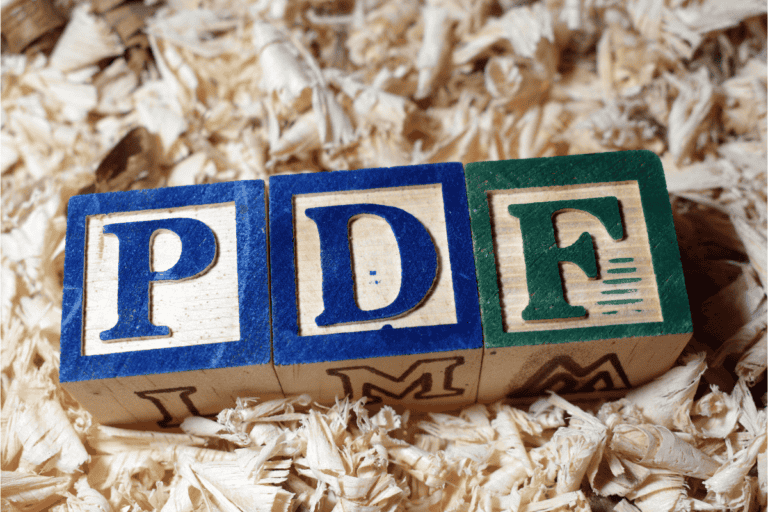How Can I Be More Mature and Emotionally Mature?
You've likely heard the saying 'with age comes wisdom,' but maturity isn't solely a product of time passing. It's a combination of self-awareness, emotional intelligence, and the ability to handle life's challenges with grace.
So, how can you cultivate these traits and become more mature and emotionally resilient? There are several key areas to focus on, and by exploring each one, you can begin to unlock the path to personal growth and maturity.
Key Takeaways
- Developing emotional intelligence enhances social interactions and emotion management.
- Cultivating self-awareness allows for clearer perspective and decision-making.
- Navigating relationships requires active listening, empathy, and honest dialogue.
- Coping with stress involves identifying triggers, creating healthy habits, and seeking support.
Understanding Emotional Intelligence
Understanding emotional intelligence can greatly enhance your ability to navigate social interactions and manage your own emotions effectively. Developing empathy is a key component of emotional intelligence. It involves being able to understand and share the feelings of others, which can lead to more meaningful and productive relationships.
By recognizing and managing your own emotions, you can respond to situations in a more balanced and constructive manner. This self-awareness allows you to approach challenges with a clearer perspective and make decisions with a calmer mind.
Cultivating Self-Awareness
To become more self-aware, start by reflecting on your actions and the impact they've on yourself and others. Recognize your emotional triggers and the patterns of behavior that accompany them.
Reflecting on Actions
By taking the time to reflect on your actions, you can cultivate a deeper sense of self-awareness and gain valuable insights into your behavior and its impact on others. Self-reflection is an essential tool for personal growth.
When you pause to analyze your behavioral patterns, you engage in introspective analysis, which allows you to understand the reasons behind your actions. This insight enables you to make positive changes and develop healthier ways of interacting with others.
Reflecting on your actions also helps you recognize any harmful or negative behaviors, providing an opportunity for self-improvement. This process can be both challenging and rewarding, as it requires honesty and vulnerability.
Embracing this practice with an open mind and heart will lead to greater emotional maturity and improved relationships.
Recognizing Emotional Triggers
As you reflect on your actions and their impact, you can begin to recognize the emotional triggers that influence your behavior, fostering a deeper sense of self-awareness and understanding. Identifying triggers is a crucial step in managing emotions effectively.
Emotional triggers are often rooted in past experiences or deeply held beliefs, and they can manifest as feelings of anger, sadness, anxiety, or frustration. By paying attention to your emotional responses in different situations, you can start to pinpoint specific triggers that lead to unproductive or distressing reactions.
Once you're able to identify these triggers, you can work on developing strategies for self-regulation. This may involve practicing mindfulness, seeking support from others, or engaging in activities that promote relaxation and emotional balance. Self-regulation allows you to respond to triggers in a more constructive and mindful manner, ultimately fostering emotional maturity.
Navigating Relationships and Communication
Navigating relationships and communication requires active listening, empathy, and open, honest dialogue to foster understanding and connection. It's essential to approach interactions with a willingness to truly hear and understand the other person's perspective.
Here are three key aspects to consider:
- Active Listening: Engage fully in the conversation, give your full attention, and show that you genuinely care about the other person's thoughts and feelings.
- Empathy: Put yourself in the other person's shoes, acknowledge their emotions, and respond with compassion.
- Honest Dialogue: Create a safe space for open communication, where both parties can express themselves without fear of judgment.
Developing Coping Skills for Stress
Developing coping skills for stress involves identifying triggers, creating healthy habits, and seeking support when needed. Stress management is essential for overall well-being. It's crucial to recognize what causes stress in your life. Once you identify these triggers, you can work on addressing them. Additionally, incorporating relaxation techniques into your daily routine can significantly reduce stress levels. Taking time for activities such as meditation, deep breathing exercises, or yoga can help calm your mind and body. Furthermore, seeking support from friends, family, or a therapist is a proactive way to cope with stress. Remember, it's okay to ask for help when you need it. Here's a table outlining some effective relaxation techniques:
| Relaxation Technique | Description | Tips for Success |
|---|---|---|
| Meditation | Focuses your mind | Find a quiet space |
| Deep Breathing | Calms the nervous system | Breathe in for 4, hold for 4, out for 4 |
| Yoga | Combines physical movement with mindfulness | Start with beginner poses |
Making Thoughtful Decisions
Identifying triggers for stress and developing coping skills can empower you to make thoughtful decisions in challenging situations. Making informed decisions is crucial for mature decision-making.
Here are some tips to help you navigate through tough choices:
- Gather all relevant information before making a decision. This can help you weigh the pros and cons effectively.
- Consider the potential consequences of each option. Reflect on how your decision might impact not only you but also those around you.
- Take your time. Rushing into a decision can lead to regrets. Give yourself the space to think things through.
Embracing Accountability and Responsibility
Taking ownership of your actions and their consequences is a cornerstone of emotional maturity and personal growth. Personal accountability involves acknowledging the impact of your choices on yourself and others. It requires a willingness to confront the outcomes of your decisions, both positive and negative, and to learn from them.
Taking ownership means understanding that you have the power to shape your life through your actions and reactions. It's about recognizing that you're responsible for your behavior and the way you respond to challenges.
Embracing accountability and responsibility involves being proactive in addressing the aftermath of your actions, whether it's making amends, learning from mistakes, or striving to do better in the future. It's a vital step towards becoming more mature and emotionally grounded.
Handling Conflict and Challenges
When faced with conflict and challenges, it's important to develop effective conflict resolution techniques and emotional resilience strategies.
Learning to communicate effectively, actively listen, and find common ground can help navigate through difficult situations.
Additionally, building emotional resilience by practicing self-care, seeking support, and maintaining a positive mindset can help you overcome challenges with grace and maturity.
Conflict Resolution Techniques
Understanding and implementing effective conflict resolution techniques is essential for nurturing mature and emotionally healthy relationships. When conflicts arise, it's crucial to approach them with care and consideration for all parties involved.
Here are some techniques to help you navigate through challenging situations:
- Active Listening: Truly hearing and understanding the other person's perspective can go a long way in resolving conflicts.
- Mediation: Seeking the help of a neutral third party can provide a safe space for open communication and resolution.
- Negotiation Techniques: Finding common ground and working towards a mutually beneficial solution can lead to sustainable resolutions.
Emotional Resilience Strategies
To navigate through conflicts and challenges with emotional resilience, it's important to cultivate a mindset that embraces growth and learning from difficult experiences. Building resilience involves acknowledging your emotions, understanding their impact, and managing them effectively.
Embracing change is another crucial aspect of emotional resilience. It's about being adaptable and open to new ways of thinking and approaching situations.
Seeking support from friends, family, or a therapist can provide valuable perspectives and coping strategies. It's essential to recognize that facing challenges with emotional resilience doesn't mean avoiding or suppressing emotions, but rather acknowledging them and choosing how to respond constructively.
Practicing Empathy and Compassion
Practicing empathy and compassion involves actively listening to others and seeking to understand their emotions and experiences. It requires a genuine desire to connect with others and offer support in times of need. Here are a few ways to cultivate empathy and compassion:
- Put Yourself in Their Shoes: Imagine how the other person might be feeling and what they might be going through.
- Offer Kind Words and Gestures: Small acts of kindness can go a long way in showing compassion and support.
- Validate Their Feelings: Let the person know that their emotions are valid and that you're there for them.
Setting Boundaries and Prioritizing Self-Care
When it comes to setting boundaries and prioritizing self-care, it's important to recognize that your needs are valid and deserve attention.
Establishing healthy boundaries allows you to protect your time, energy, and emotions, while prioritizing self-care ensures that you're nurturing your well-being.
Boundaries for Self-Care
Setting healthy boundaries is essential for prioritizing self-care and maintaining emotional well-being. It's important to recognize that setting boundaries isn't about being selfish, but rather about ensuring your well-being.
Here are some essential aspects to consider when setting boundaries for self-care:
- Recognize Your Limits: Acknowledge when you're feeling overwhelmed and learn to say no when necessary.
- Communicate Effectively: Clearly express your needs and limits to others, while also respecting their boundaries.
- Practice Self-Compassion: Understand that prioritizing self-care isn't a sign of weakness, but an essential part of maintaining emotional well-being.
Self-Care Priorities
Understanding your own needs and limits is crucial in prioritizing self-care and setting healthy boundaries.
Stress management plays a significant role in self-care priorities. Consider incorporating relaxation techniques into your daily routine, such as deep breathing exercises, meditation, or taking short breaks during the day to clear your mind.
Engaging in self-care practices and mindfulness exercises can also help you prioritize your well-being. This might include activities like journaling, spending time in nature, or engaging in hobbies that bring you joy.
Healthy Boundary Setting
To maintain a healthy balance in your life and prioritize self-care, it's essential to establish healthy boundaries that align with your emotional and mental well-being. Setting boundaries allows you to protect your personal space and maintain respectful communication in your relationships. Here are some key points to consider:
- Personal Space: Establish boundaries to create a safe and comfortable space for yourself, where you can recharge and focus on your well-being.
- Respectful Communication: Clearly communicate your boundaries to others, and encourage open and understanding dialogues to foster healthy relationships.
- Assertive Behavior: Embrace assertiveness when setting and enforcing boundaries, empowering yourself to maintain a healthy balance and promote self-care.
Embracing Growth Mindset and Learning From Mistakes
Embracing a growth mindset and learning from mistakes is an essential part of becoming more mature and emotionally resilient. Cultivating a growth mindset allows for continuous self-improvement and personal development. It involves viewing challenges as opportunities for growth and seeing failures as valuable learning experiences. By embracing this mindset, you can shift your focus from seeking validation to seeking improvement, leading to a more fulfilling and resilient life.
Learning from failure is a crucial aspect of personal development. It provides an opportunity to analyze what went wrong, understand the underlying reasons, and make necessary adjustments for future endeavors. Embracing the lessons that come from failure fosters resilience and adaptability, essential traits for emotional maturity. It allows you to approach life with a sense of curiosity and openness, leading to greater self-awareness and emotional growth.
Conclusion
In conclusion, learning to be more emotionally mature takes time and effort, but it's worth it.
Did you know that people with high emotional intelligence are 58% more likely to succeed in their careers?
By cultivating self-awareness, empathy, and coping skills, you can navigate relationships, handle stress, and make thoughtful decisions with maturity.
Embracing a growth mindset and setting boundaries will help you prioritize self-care and continue to learn and grow.
Keep working on it, you're doing great!







